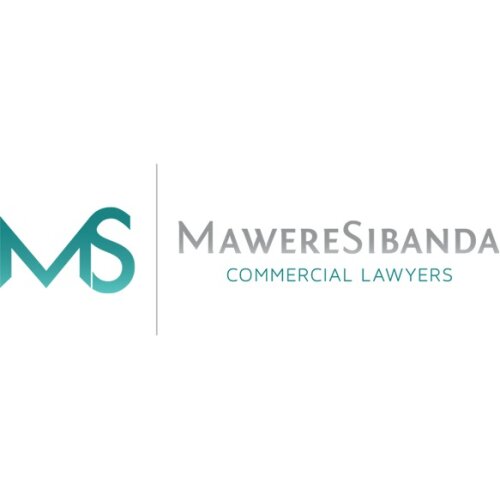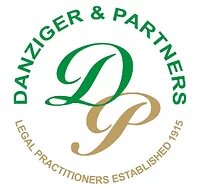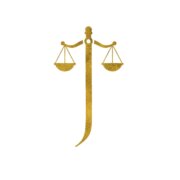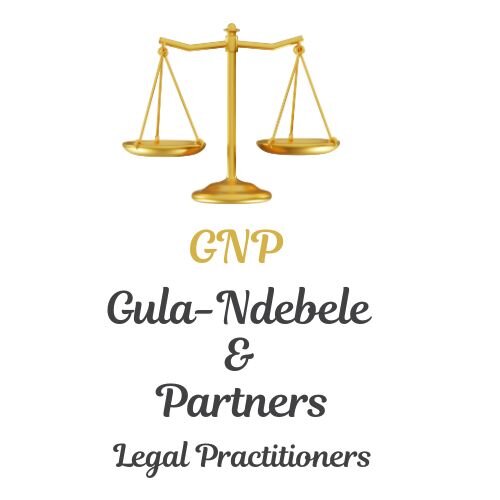Best Government Relations & Lobbying Lawyers in Zimbabwe
Share your needs with us, get contacted by law firms.
Free. Takes 2 min.
Or refine your search by selecting a city:
List of the best lawyers in Zimbabwe
About Government Relations & Lobbying Law in Zimbabwe
Government Relations & Lobbying in Zimbabwe involves interacting with government officials and agencies to influence decision-making processes. It encompasses activities such as advocating for legislative change, negotiating for business benefits, and ensuring compliance with governmental policies. Lobbying is not highly formalized in Zimbabwe, and much of the interaction happens at both the local and national levels through various informal channels. This field is critical for businesses, non-profit organizations, and interest groups aiming to impact policy-making or seeking government contracts.
Why You May Need a Lawyer
There are several scenarios where legal assistance may be required in Government Relations & Lobbying:
- Regulatory Compliance: Navigating the complex web of compliance with local laws and regulations can be challenging without legal expertise.
- Legislative Advocacy: Seeking changes to existing laws or policies requires strategic legal approaches and familiarity with legislative processes.
- Understanding Legal Boundaries: Avoiding legal pitfalls in lobbying activities, such as conflicts of interest or bribery allegations.
- Contract Negotiations: Engaging with the government for contracts requires a deep understanding of terms and implications, where legal advice is invaluable.
- Dispute Resolution: Legal support may be essential in resolving disputes with government entities or other stakeholders.
Local Laws Overview
Key aspects of Zimbabwe's laws relevant to Government Relations & Lobbying include:
- The Constitution: Provides the overarching legal framework and outlines fundamental rights, which can impact lobbying efforts.
- Local Government Laws: Govern interactions with local authorities, including procurement and service delivery arrangements.
- Anti-Corruption Regulations: Address bribery and corruption issues, critical to maintaining ethical lobbying practices.
- Investment and Corporate Laws: Regulate how businesses engage in lobbying activities related to contracts and foreign investments.
- Political Parties and Elections Act: Includes guidelines that can affect lobbying during election periods.
Frequently Asked Questions
What is lobbying in the Zimbabwean context?
Lobbying in Zimbabwe involves advocating for policy changes or favorable governmental decisions typically at various levels of government interaction.
Is there a legal framework for lobbying in Zimbabwe?
Zimbabwe lacks a formalized legal framework dedicated to lobbying, but related activities must comply with broader legislation such as anti-corruption laws and public procurement norms.
Can foreign entities lobby in Zimbabwe?
Yes, however, foreign entities must adhere to the same legal standards as local entities, which can include additional scrutiny in compliance matters.
What are the consequences of illegal lobbying?
Consequences can include fines, imprisonment, and professional bans, especially if activities such as bribery or corruption are involved.
Who regulates lobbying activities in Zimbabwe?
No specific body regulates lobbying activities, but entities like the Anti-Corruption Commission oversee related legal compliance aspects.
How can a lawyer assist in government relations?
Lawyers can provide strategic advice, help draft advocacy documents, ensure compliance, and represent clients in discussions with government entities.
What ethical considerations exist in lobbying?
Ethical lobbying involves transparency, honesty, and adherence to all applicable laws, avoiding any conflicts of interest.
How do I choose the right lawyer for lobbying needs?
Look for lawyers with experience in government relations, a strong understanding of relevant laws, and a successful track record in lobbying projects.
Is lobbying limited to certain sectors?
No, lobbying can be conducted by any sector that seeks to influence government decisions, including businesses, non-profits, and advocacy groups.
Can individuals lobby the government?
Yes, individuals with vested interests in certain policies can engage in lobbying activities, often self-representing or through organized groups.
Additional Resources
For further insight and assistance, consider reaching out to the following resources:
- Zimbabwe Anti-Corruption Commission: For guidelines on ethical lobbying and compliance.
- The Ministry of Justice, Legal and Parliamentary Affairs: Provides legal frameworks and updates relevant to governmental interactions.
- Parliament of Zimbabwe: For access to legislative changes and opportunities for public consultations.
- Law Society of Zimbabwe: Offers directories of qualified lawyers experienced in government relations.
Next Steps
If you need legal assistance in Government Relations & Lobbying, consider taking the following steps:
- Identify Your Needs: Clearly define the objective of your lobbying efforts and potential legal challenges.
- Research Potential Lawyers: Use resources like the Law Society of Zimbabwe to find experienced legal professionals.
- Set Up Consultations: Engage with selected lawyers to discuss your specific situation and assess their suitability.
- Gather Necessary Documentation: Prepare any relevant documents, contracts, or agreements that may aid in your legal proceedings.
- Secure Legal Representation: Choose a lawyer who best fits your needs, establishing a formal agreement to proceed with your lobbying efforts.
Lawzana helps you find the best lawyers and law firms in Zimbabwe through a curated and pre-screened list of qualified legal professionals. Our platform offers rankings and detailed profiles of attorneys and law firms, allowing you to compare based on practice areas, including Government Relations & Lobbying, experience, and client feedback.
Each profile includes a description of the firm's areas of practice, client reviews, team members and partners, year of establishment, spoken languages, office locations, contact information, social media presence, and any published articles or resources. Most firms on our platform speak English and are experienced in both local and international legal matters.
Get a quote from top-rated law firms in Zimbabwe — quickly, securely, and without unnecessary hassle.
Disclaimer:
The information provided on this page is for general informational purposes only and does not constitute legal advice. While we strive to ensure the accuracy and relevance of the content, legal information may change over time, and interpretations of the law can vary. You should always consult with a qualified legal professional for advice specific to your situation.
We disclaim all liability for actions taken or not taken based on the content of this page. If you believe any information is incorrect or outdated, please contact us, and we will review and update it where appropriate.
Browse government relations & lobbying law firms by city in Zimbabwe
Refine your search by selecting a city.















